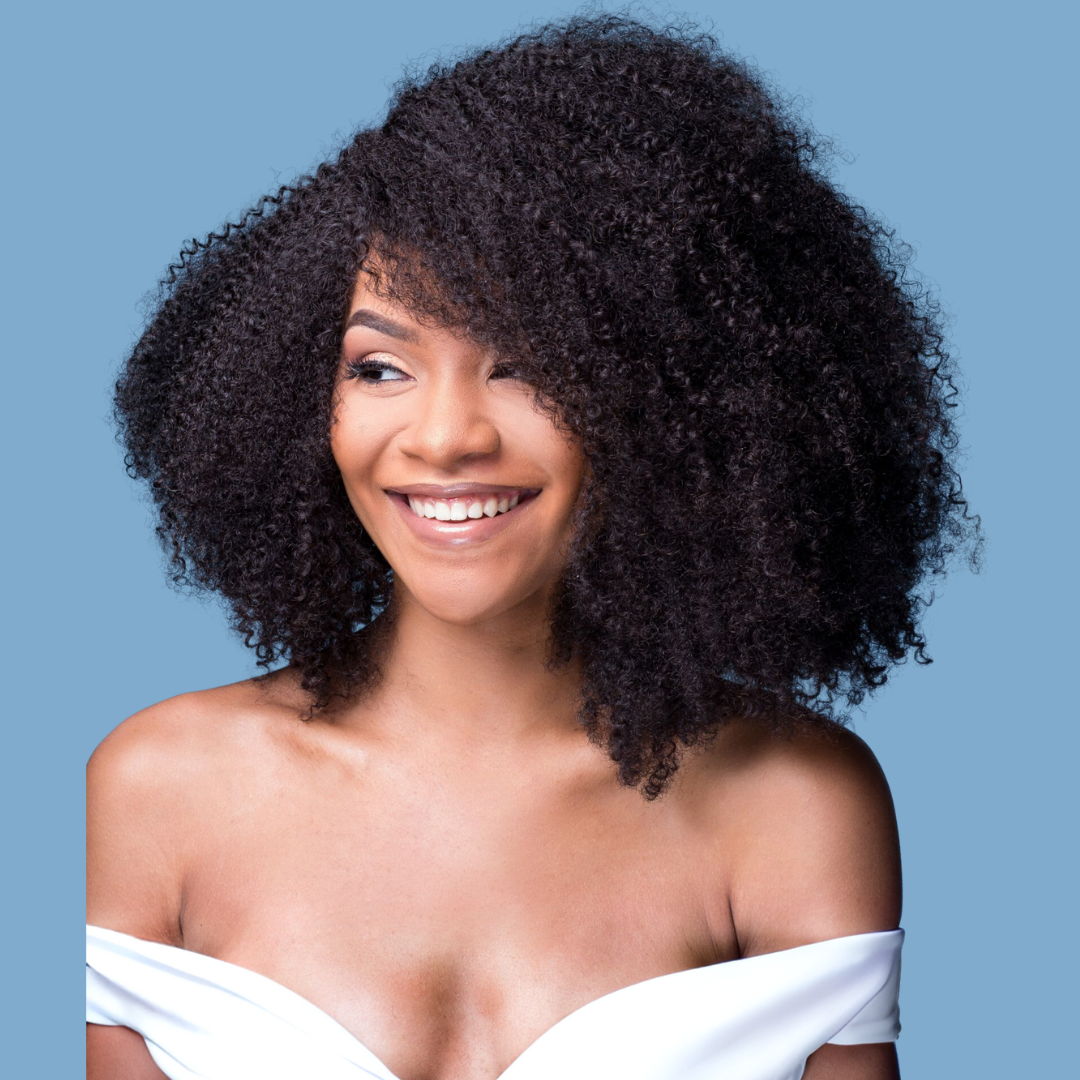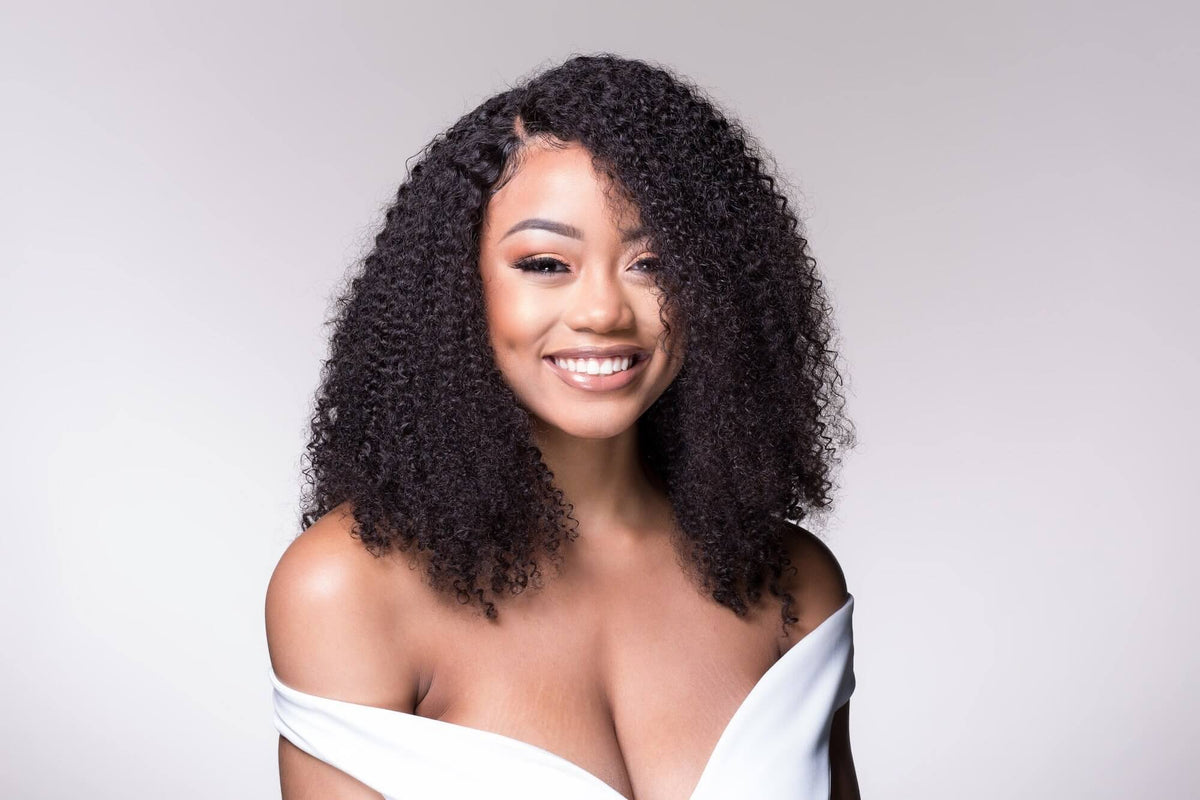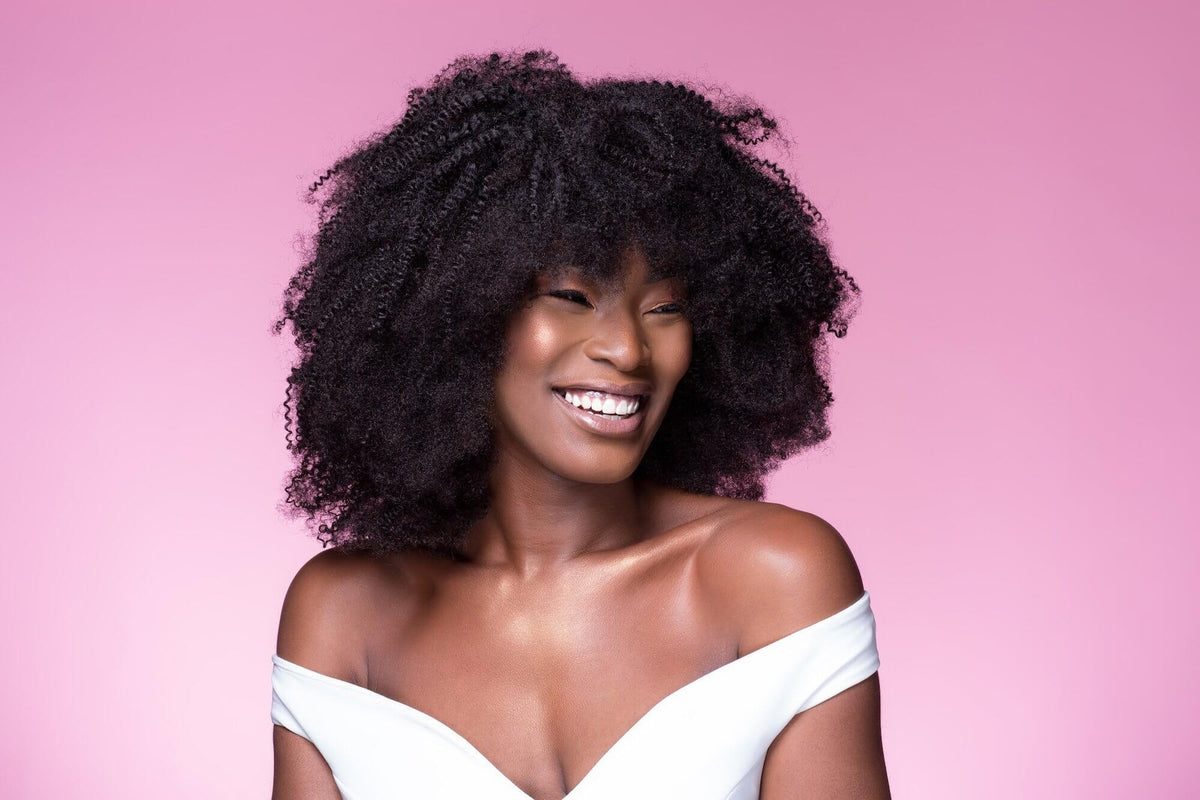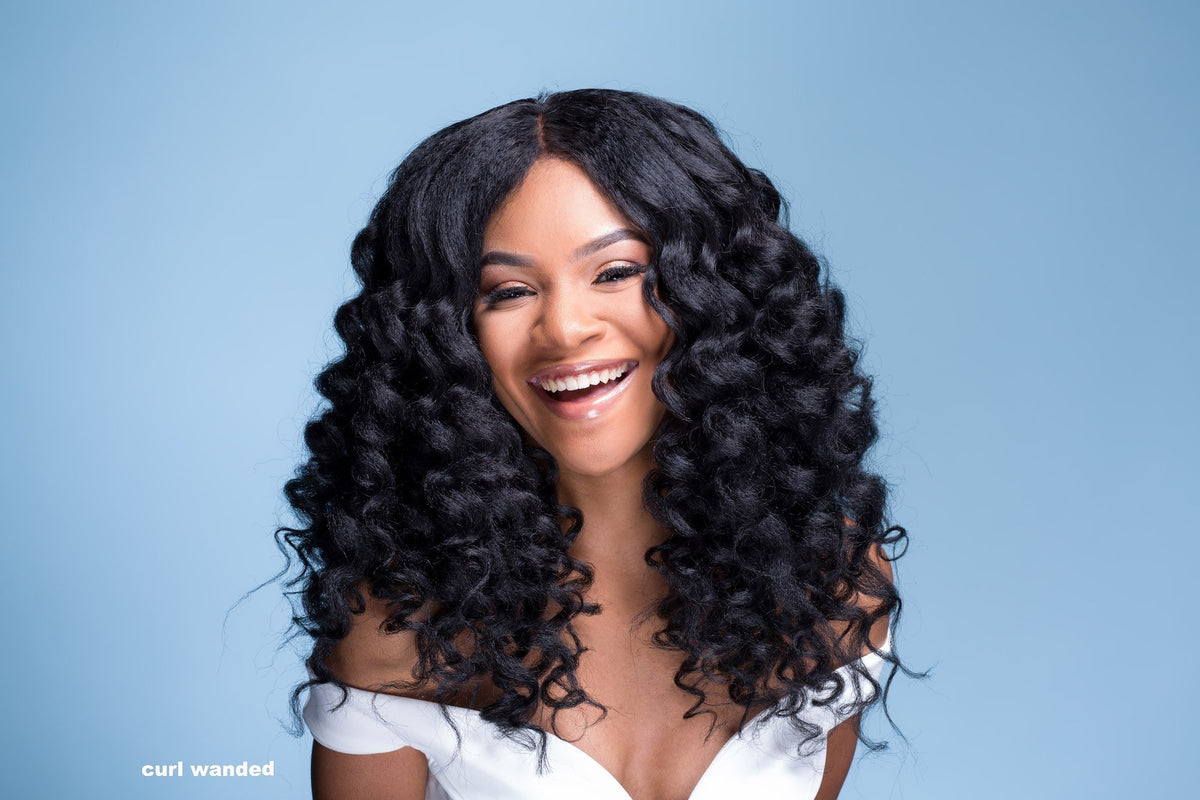
Natural afro kinky hair is known to be one of the most delicate and fragile hair types on the planet. Afro kinky hair requires gentle handling and tender care in order to grow and flourish. This includes maintaining a proper hair care regimen, a healthy diet, and of course, protective styling when necessary.
The needs of your hair and the manner in which you care for your hair are usually determined by your hair texture. For instance, a Queen with straight hair may use a fine-tooth comb to style her hair, whereas, a Queen with curly or afro kinky hair would need to use a wide-toothed comb or fingers for natural hair styling and detangling.
How to Identify Afro Kinky Hair Types
Hair typing is something that many naturals inquire about to understand how to care for their hair or to simply describe the texture of their natural tresses. There are several hair typing systems which include the Andre Walker hair typing system, the LOIS system, and the FIA hair typing system. Admittingly, the Andre Walker’s method seems to be the most popular amongst us.
Tightly curled or coiled hair is the natural curl pattern for most Queens. Type 4 hair textures feature fragile and densely packed hair. Depending on the curl pattern this Type 4 hair can be considered both kinky curly or kinky coily. There are 3 categories of Type 4 hair: 4A, 4B, and 4C. Each hair type has its own distinguishing characteristics in texture and appearance.
Hair Type 4A Hair
Type 4A hair closely resembles the letter “s” in its natural state when clean and free from product. The curl pattern is often described as defined coils. If your hair is Type 4A your crown requires a lot more moisture and hydration to thrive than other hair types. The good news is that your hair texture is known to retain moisture well.
To care for 4A hair remember to use moisturizing shampoos and conditioners. These products can help rehydrate parched strands and prevent 4A hair from becoming dry or damaged. Using natural oils, moisturizers, hair milks, and light hair butters will also be helpful in maintaining your hair.
Hair Type 4B Hair
The texture of 4B hair has a slightly less defined curl pattern than 4A hair. A single strand of your hair type will closely resemble the letter “z” as the hair has sharp angles instead of curves. Type 4B hair can also shrink up to 70 percent of its length, so even if your hair is 20-inches long it may appear that you only have 6-inches of hair length when completely dry.
To care for 4B hair remember to establish a hair care regime that works for you. The LOC method ensures that you apply enough moisture to your hair every time you wash. It involves applying a leave-in-conditioner, oil, and cream. It’s recommended that you consider making a homemade leave-in-condition to meet the demands of your crown. Check out these homemade leave-in-conditioner recipes to get started.
Hair Type 4C Hair
Type 4C hair consists of tightly coiled hair with no defined curl pattern. Your hair texture is more resistant to moisture and can shrink up to 75 percent of its true length. It is also the most dense. As the most fragile hair texture it requires regular care to prevent breakage and damage. Damage occurs most often in 4C hair because it becomes dry more quickly than other hair types and is thus prone to tangles and hair shed.
Your 4C hair may appear dull because of its tight coils and should be moisturized regularly. A sulfate-free shampoo, moisturizing conditioners, creamy butters, and protective styling products can all be used to seal in and retain moisture.
A bi-weekly deep conditioning treatment is also recommended in order to strengthen 4C hair, lock in moisture, and retain length. Protective styling is key in maintaining 4C hair because of its delicacy. Wearing styles such as natural hair wigs, braids and twists will prevent the hair from shedding faster than it can grow.
The Evolution of Afro Kinky Hair
There are many hair typing systems that currently exist but there are several more emerging systems as well. Understanding your curl pattern and hair type is essential to ensuring you maintain a healthy crown and find natural hair extensions that blend seamlessly with your curl pattern.
As more Queens transition to wearing their natural Black hair, hair product manufacturers are beginning to develop and create hair typing systems personalized around afro kinky hair types. These manufacturers have begun to introduce natural hair wigs, weaves and extensions by creating their own hair typing systems to cater to Queens looking for more sustainable care for their hair’s texture.
Less than 5 years ago, women had very limited options in locating hair extensions that resembled their own natural hair textures. However, afro kinky hair extensions are on the rise as more women create a demand for hair that looks natural and blends with their natural curl pattern.
Natural afro kinky hair is high maintenance and requires regular moisturizing and care. While products and techniques continue to make caring for natural hair easier, many Queens choose to use weaves and wigs as protective styling options. Protective styling helps retain length and encourages growth. There are numerous options available when it comes to protective styling with natural hair weaves, wigs, and extensions.
Curly Clip-In Extensions
Curly clip-in extensions are by far the easiest and quickest hair extension system to install. These types of extensions come in a single or multiple wefts with small snap-in clips or combs. They are easy to attach to afro kinky hair and can be installed even if you are a novice at installing hair extensions. Clip-in extensions are extremely versatile and can be used to add more volume or highlights to your own natural hair.
Afro Kinky Hair Bundles
One of the more popular types of afro kinky hair extensions are bundles. Hair bundles are simply wefts of hair that are sewn together at the top. They can range in texture and can be used for sew-in styles or to make your own clip-ins.
Sew-in hair extensions are extremely popular for their benefits in helping to grow your natural hair. With this style, your natural hair is braided and left in a somewhat dormant state while extensions are sewn into your own braided hair. Although both synthetic and human hair bundles are available most naturals choose human hair because it can be washed, conditioned and continuously reused if the hair is properly maintained.
Natural Hair Wigs
Natural hair wigs have definitely evolved over the years as they offer versatility when it comes to experimenting with different hair styles, colors, textures, and lengths. Long gone are the days when afro kinky wigs lacked in style and just screamed fake. You can now find hundreds of wigs that resemble afro kinky hair in both its natural and heat-styled state, similar to our Light Yaki collection. Afro kinky wigs give us the freedom to try different hairstyles without the commitment or damage to our natural crowns.
Crochet Braids
Crochet braids is a natural hairstyle that keeps your own hair protected. The crochet method involves braiding your own hair in a specific pattern and then using a latch hook to weave the extension hair into your own hair. There are some brands that manufacture specific hair to be used for crocheting including a pre-cut loop in the hair for easier installation.
Braiding Hair
One of the oldest methods of protective styling in the natural hair community is braiding your natural Black hair. You can braid your own hair or add hair extensions depending on your desired look. Braids are usually installed with synthetic hair. Kanekalon and Toyokalon seem to be the most popularly used afro hair extensions for braids. Most braided styles last for several weeks when maintained properly.
With so many options of afro kinky hair extensions on the market the possibilities are endless. Hair extensions that resemble Black natural hair types are on the rise. At KinkyCurlyYaki we pride ourselves on only offering hair extensions that cater to women with kinkier hair types. We are committed to ensuring that Queens are offered more than just long, straight hair that looks nothing like our own hair.
For the latest in styling tips and tricks for afro kinky hair types, styles, and care subscribe to our blog.



